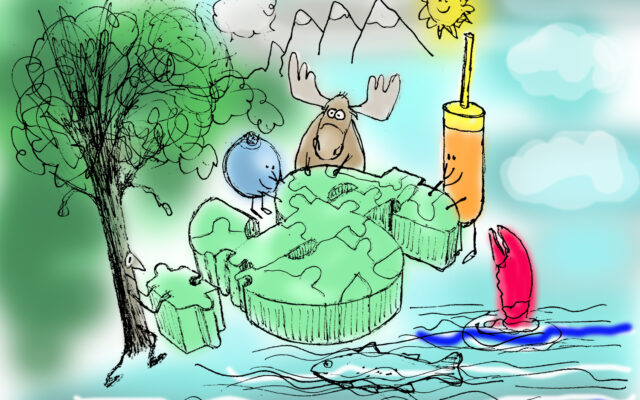
Funding for natural resources must be a priority
By Cynthia Phinney and Eliza Townsend
After weeks of public hearings on the governor’s proposed biennial budget, the real work begins. With an understanding of the full picture, legislative budget writers now will craft a final plan that guides the state’s spending for the coming two years. We ask that they fully invest in Maine’s natural resources and the public employees who steward them.
The natural world defines our state, from the alluvial plains of the St. John Valley to the sand beaches of York County, from the clear waters of our forested northwest to the dramatic bold coast down east. Our wildlife and crops attract visitors and give our lives flavor. Potatoes and lobster, moose and blueberries — this is Maine.
Our natural assets not only make Maine unique and are the basis of our prized quality of life, but they drive our economy. The agricultural sector contributes an estimated $11.7 billion to the state economy annually, the forest products sector $8.1 billion, the marine products industry $3.2 billion, the tourism industry $7 billion and and the outdoor recreation sector $3 billion. Maine ranks in the top five states for percentage of the GDP attributable to outdoor recreation.
Our precious natural resources are safeguarded by the Departments of Agriculture, Conservation and Forestry; Environmental Protection; Inland Fisheries and Wildlife; and Marine Resources. Critical related programs reside within the Governor’s Office of Policy and Innovation, the Governor’s Energy Office, Efficiency Maine, and the Maine Office of Outdoor Recreation. These agencies have long carried out their legislative charge while facing the challenges of inadequate funding and staffing.
Today we face serious issues. Climate change threatens our safety, our property, our infrastructure, our food systems, our very future. Biodiversity loss threatens the fragile ecosystems that are the basis of the industries named above as well as the foundation of life on earth. The prevalence of PFAS pollution threatens human and animal health as well as our agricultural heritage. We must develop clean energy and manage development pressures without losing Maine’s remarkable quality of life, carelessly wasting valuable open space, and further contributing to greenhouse gas emissions.
Even as the state faces such serious challenges, we hear again and again from state agencies unable to fill key positions due to low salary levels. Well-qualified applicants are selecting jobs with more security and better pay. Testimony during the ongoing state budget hearings makes clear that throughout all departments of Maine state government, state workers are overworked and underpaid. It’s more important than ever that the governor and Legislature work together to fund, complete and implement the long-overdue reclassification and compensation study for Maine state government.
We need the state’s natural resource agencies to be fully staffed with the best available talent and fully funded to carry out their important work. When that work goes smoothly, we breathe clean air, drink clean water, enjoy safe and abundant seafood, recreate in our state parks and public lands, hunt, fish, and birdwatch, and eat healthy local foods. It’s easy to take it for granted, but we must not. Who has not celebrated upon crossing the Kittery bridge, relieved to put behind us the noise, traffic, billboards, trash, pollution, and poor planning seen in other states?
Further, with the state in good fiscal health, we have the opportunity to position ourselves for the future by investing in our outdoor economy. Our quality of life and easy access to the outdoors were factors in attracting new residents in the wake of the pandemic, making Maine the only state to see its population trend younger between 2020 and 2021. With investment, they can continue to draw a new generation, addressing Maine’s longstanding challenge of an aging population and helping to ease workforce shortages.
A budget is a road map that spells out the state’s priorities. Lawmakers should prioritize Maine’s extraordinary natural assets—our air, land, water, plants, and wildlife–and the people who ensure that they will remain clean and abundant well into the future.
Phinney is the president of the Maine AFL-CIO and a leader of the Maine Labor Climate Council. Townsend is Maine conservation policy director for the Appalachian Mountain Club.